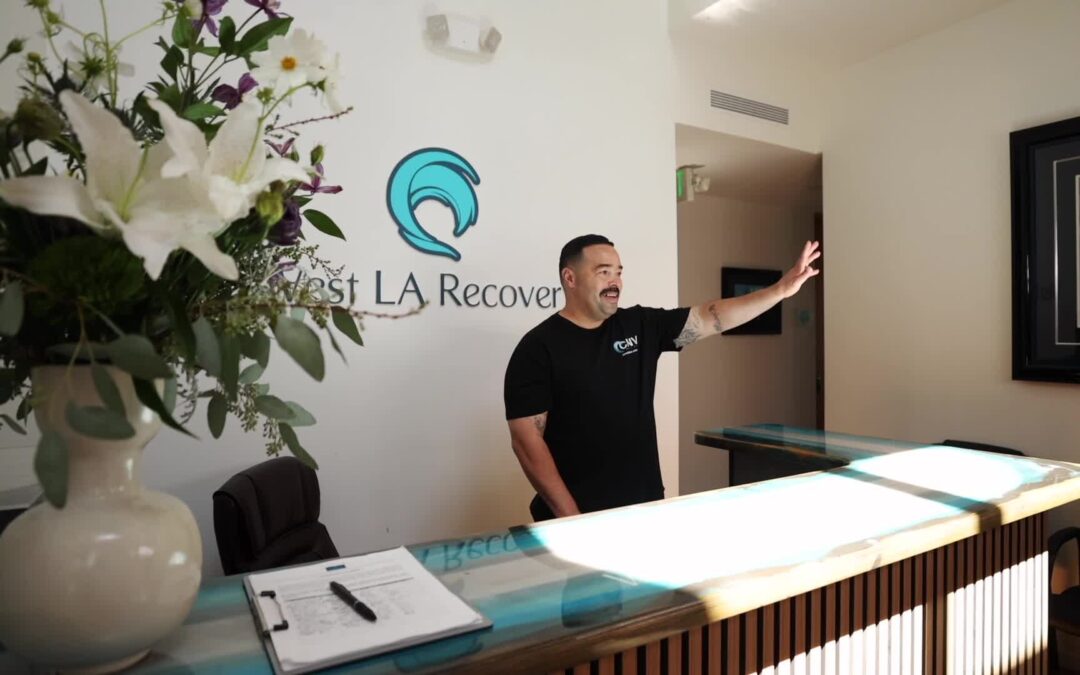How Does the Center Integrate Treatment for Both Mental Health and Substance Use Disorders?
When you’re looking for dual diagnosis treatment, it’s important to know how a facility handles integrated care. This can greatly impact your chances of recovery. The best dual diagnosis programs treat mental health conditions, like those in our mental health category, and substance use disorders as connected issues instead of separate problems needing different solutions.
True integrated care means your treatment team works on both conditions at the same time through coordinated efforts. This method understands that depression, anxiety, bipolar disorder, or PTSD often contribute to substance use patterns, while addiction can make mental health symptoms worse. You require experts who comprehend these complicated relationships and can create treatment plans that address both issues simultaneously.
The collaboration between mental health professionals and addiction specialists is what sets apart fragmented care from complete healing. Your psychiatrist, therapist, and addiction counselor should regularly discuss your progress, medication changes, and therapy objectives. This teamwork guarantees that you’re not receiving conflicting treatment advice or facing interruptions in care.
Behavioral therapies are the foundation of integrated treatment programs:
- Cognitive Behavioral Therapy (CBT) helps you identify thought patterns that contribute to both mental health symptoms and substance use
- Dialectical Behavior Therapy (DBT) teaches emotional regulation skills essential for managing co-occurring disorders
- Trauma-informed therapies address underlying experiences that may drive both conditions
Medication management requires specialized expertise in dual diagnosis treatment. Your medical team must understand how psychiatric medications interact with addiction recovery and withdrawal processes. They’ll monitor your response to medications while ensuring they don’t interfere with your sobriety goals.
Our dual diagnosis program exemplifies this integrated approach through our multidisciplinary team model. We coordinate care between our psychiatrists, licensed therapists, and addiction specialists to ensure you receive comprehensive treatment that addresses all aspects of your co-occurring disorders. This coordinated care approach has proven effective for countless individuals seeking lasting recovery from both mental health and substance use challenges.
2. What Types of Individualized Treatment Plans Are Offered?
Individualized dual diagnosis treatment requires a comprehensive understanding of each person’s unique circumstances. Every client brings a distinct combination of factors that shape their recovery journey, making personalized care plans essential for successful outcomes.
Key Factors That Shape Your Treatment Plan
Your treatment plan depends on several critical elements that our clinical team carefully evaluates:
- Age and developmental stage – Adolescents require different approaches than adults or seniors
- Types of substances involved – Alcohol, opioids, stimulants, and prescription drugs each present unique challenges
- Specific mental health diagnoses – Depression, anxiety, PTSD, bipolar disorder, and other conditions require specialized interventions
- Severity of both conditions – The intensity of symptoms determines the level of care needed
- Previous treatment history – Past experiences inform future treatment strategies
- Family dynamics and support systems – Your relationships significantly impact recovery success
The Assessment Process: Building Your Personalized Plan
Our comprehensive assessment process forms the foundation of your personalized care plans. You’ll work with our multidisciplinary team through detailed evaluations that examine your mental health symptoms, substance use patterns, medical history, and psychosocial factors. This thorough approach ensures your treatment addresses both conditions simultaneously rather than treating them as separate issues.
The assessment identifies your strengths, challenges, and specific triggers that contribute to both your mental health symptoms and substance use. This information guides the development of targeted interventions that resonate with your personal experiences and goals.
Tailored Support Throughout Your Journey
Your substance use disorder therapy evolves as you progress through treatment. We incorporate various support elements based on your changing needs:
- Specialized therapy groups matched to your specific diagnoses
- Individual counseling sessions adapted to your learning style and preferences
- Family therapy when appropriate for your situation
- Peer support connections with others facing similar challenges
At West LA Recovery, our commitment to West LA dual diagnosis care means your treatment plan remains flexible and responsive to your progress, ensuring you receive the most effective interventions at each stage of your recovery.
3. What Level of Medical Supervision and Detox Support Is Available?
When you’re dealing with co-occurring disorders, the complexity of withdrawal symptoms requires specialized expertise in both addiction and mental health. Your body processes substances differently when mental health conditions are present, making professional oversight essential for safe and effective recovery.
Medically supervised detoxification services become critical when substance dependence intertwines with psychiatric symptoms. You might experience heightened anxiety during alcohol withdrawal while managing bipolar disorder, or face severe depression during opioid detox alongside existing PTSD. Our medical team monitors these interactions continuously, adjusting treatment protocols to address both your addiction and mental health needs simultaneously.
Intensive Inpatient Care for Complex Cases
Inpatient dual diagnosis care Los Angeles provides the highest level of support for severe co-occurring disorders. You receive 24/7 medical monitoring in a controlled environment where:
- Medical professionals track vital signs and withdrawal symptoms
- Psychiatric specialists assess mental health stability
- Nursing staff provides immediate intervention when complications arise
- Emergency protocols activate instantly for medical or psychiatric crises
Coordinated Medication Management
Our medical staff coordinates medication management alongside therapeutic interventions throughout your detox and treatment phases. You work with psychiatrists who understand how addiction medications interact with mental health prescriptions. This coordination prevents dangerous drug interactions while ensuring both conditions receive appropriate pharmaceutical support.
The integration extends beyond medication timing. Your medical team collaborates with therapists to adjust dosages based on your therapy progress and emotional stability. When you participate in group sessions or individual counseling, your medical providers receive updates to fine-tune your medication regimen accordingly.
Our detoxification services combine medical expertise with compassionate care, recognizing that your journey involves both physical healing and psychological recovery. This comprehensive approach ensures you receive the medical attention necessary for safe withdrawal while building the foundation for long-term dual diagnosis recovery.
It’s crucial to understand that detoxification is not just about eliminating substances from your body; it’s also about managing the psychological aspects of withdrawal. This requires a sturdy framework of support that addresses both physical and mental health needs in a synchronized manner.
4. How Does the Center Support Long-Term Recovery and Aftercare?
Recovery from co-occurring disorders extends far beyond initial treatment completion. Dual diagnosis aftercare forms the foundation of sustained healing, requiring specialized support that addresses both mental health and substance use challenges simultaneously.
Continuing Therapy and Support Systems
Ongoing therapy sessions remain essential for maintaining recovery gains. You need consistent access to individual counseling, group therapy, and specialized ongoing support groups Los Angeles that understand the unique challenges of dual diagnosis recovery. These sessions help you navigate triggers, develop healthy coping mechanisms, and strengthen the skills learned during initial treatment.
Support groups specifically designed for dual diagnosis create connections with others facing similar challenges. These peer networks provide accountability, shared experiences, and practical strategies for managing both conditions in real-world situations.
Tailored Relapse Prevention Strategies
Relapse prevention strategies for dual diagnosis require sophisticated planning that considers how mental health symptoms can trigger substance use and vice versa. Your personalized plan should include:
- Warning sign identification for both conditions
- Crisis intervention protocols with emergency contacts
- Medication management schedules and monitoring
- Stress management techniques specific to your triggers
Recovery Month 2025 Resources
Recovery Month 2025 brings renewed focus on sustained recovery efforts. During Recovery Month, you’ll find enhanced resources, community events, and educational opportunities that reinforce your commitment to long-term wellness. These initiatives provide additional motivation and connection to the broader recovery community.
Our Commitment to Your Success
Our Dual Diagnosis treatment approach doesn’t end when you complete your initial program. We provide comprehensive aftercare services that evolve with your needs, ensuring you have the tools and support necessary for lasting recovery. Our team remains available to adjust your aftercare plan as you progress, celebrating milestones and addressing challenges as they arise.
Your journey deserves specialized care that recognizes the complexity of dual diagnosis recovery and supports your long-term success. This includes understanding the impact of trauma on addiction, which is a crucial aspect we address in our treatment programs found here. If you have any questions or need further assistance, feel free to contact us.
FAQs (Frequently Asked Questions)
How does West LA Recovery integrate treatment for both mental health and substance use disorders?
West LA Recovery employs an integrated treatment approach that simultaneously addresses co-occurring mental health and substance use disorders. This method ensures coordinated care from both mental health and addiction specialists, utilizing evidence-based behavioral therapies such as Cognitive Behavioral Therapy (CBT) and Dialectical Behavior Therapy (DBT), alongside medication management to provide comprehensive dual diagnosis treatment.
What types of individualized treatment plans does West LA Recovery offer for dual diagnosis patients?
West LA Recovery offers personalized dual diagnosis treatment plans tailored to each individual’s unique needs. Factors such as age, specific mental health diagnoses, and the type of substances involved are carefully assessed to develop a customized care plan. These plans often include ongoing therapy, support groups, and adjustments based on the patient’s progress to ensure effective substance use disorder therapy and mental health care.
What level of medical supervision and detox support is available at West LA Recovery?
West LA Recovery provides medically supervised detoxification services essential for safely managing substance dependence alongside mental health concerns. Their inpatient dual diagnosis care programs in Los Angeles offer intensive medical supervision where staff coordinate medication management with therapeutic interventions during detox and throughout the treatment phases, ensuring comprehensive support for severe cases.
How does West LA Recovery support long-term recovery and aftercare for dual diagnosis patients?
The center emphasizes continuous therapy and participation in support groups post-treatment to maintain recovery gains. West LA Recovery develops relapse prevention strategies tailored to the complexities of co-occurring disorders and offers access to resources during events like Recovery Month 2025. Their aftercare programs are designed to provide ongoing support crucial for lasting success in dual diagnosis recovery.
What makes a dual diagnosis center effective in treating co-occurring disorders?
An effective dual diagnosis center integrates mental health and substance use disorder treatments simultaneously with coordinated care from specialized professionals. Utilization of evidence-based behavioral therapies such as CBT and DBT, combined with medication management, ensures comprehensive care. Facilities like West LA Recovery exemplify this approach by offering individualized treatment plans, medically supervised detox, inpatient care options, and robust aftercare support.
What questions should I ask when choosing a dual diagnosis treatment center in Los Angeles?
When selecting a dual diagnosis program, inquire about their integrated treatment methods addressing both disorders simultaneously, availability of individualized care plans tailored to your unique needs, level of medical supervision especially during detoxification, types of behavioral therapies offered, aftercare and relapse prevention support, as well as their success rates. Centers like West LA Recovery provide transparent information on these aspects to help you find the best program suited for your recovery journey.







